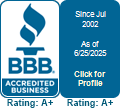Check out these great tips to improve your saving habits—and make smarter choices about your spending—today!
Start with these simple wins:
- Use bill pay.
- Sign up to Round Up and Save with your debit card.
- Use a card with rewards! (We have rewards on both debit and credit cards.)
- Open a Christmas Club or other special savings account. (With AirTeller, you can do this online.)
- In AirTeller, add tags to your transactions. This makes tracking your spending even easier.
Zero out your money at the end of each day.
For example, if you have $24 in cash at the end of the day, put $4 in a jar, envelope or box. Deposit this money periodically to your savings account. If you have $253 available in your account at the end of the day, transfer $3 to your savings account.
Be mindful of spending for the wrong reasons.
- It’s okay to tell friends you can’t afford something! It doesn’t mean you make less (or are worth less); it means you have goals and know it is better to be rich than to look rich.
- Don’t let social media influence your spending.
- Don’t use shopping/buying/spending as a reward.
- Don’t binge shop.
- Don’t try to impress people by the number of shopping bags you have.
- Think before you buy!
- For any purchase beyond basics (food, medicine, fuel), don’t make a purchase until at least 24 hours after you’ve decided you want to buy it. Ask yourself these two important questions, too:
- Is it something you need or just want?
- Is it for you, or to impress someone else?
- For any purchase, consider the cost per use.
- For groceries and similar products, you can find the cost per unit with the pricing on the shelf. This helps compare similar items.
- With bigger purchases, think about how much you’ll really use the product. A fancy new camera is great for a special vacation, but is it really worth the price if you’ll only use it one or two times a year?
- For any purchase beyond basics (food, medicine, fuel), don’t make a purchase until at least 24 hours after you’ve decided you want to buy it. Ask yourself these two important questions, too:
- Splurging is okay occasionally, but don’t overdo it.
- Better yet, every time you go a little overboard with your spending, put at least half of what you spent into your emergency fund.
Think before you drive.
- With the current price of fuel, it’s important to plan every trip you make, whether it’s to the store or to Denver.
- Try to get to a point where you’re filling your tank regularly.
- Most vehicles get better gas mileage when full.
- Fill your tank at the point you can afford—½ tank, ¼ tank—and fill up again when you get back to that point.
- NOTE: Many stations are now holding up to $150 when you go to the pump. If you don’t have this available, your card will be declined.
- Consider the way you drive.
- If it’s available on your vehicle, display fuel efficiency all the time and make it a game to get your mile per gallon higher.
- If you can’t display fuel efficiency, calculate your mile per gallon each time you fill up.
- Remember: Fast, aggressive driving wastes your gas. Slow down and calm down.
Fine yourself each time you indulge in bad habits.
- Some examples: Smoking, gambling, cursing, etc.
- Each time you do the habit, add your “fine” amount to your savings account.
- Not only will this add to your savings, it may also help you break those habits in the process.
Every paycheck, pay yourself first.
- Do as much as you can without having to tap into your savings at the end of the pay period.
- Put this money somewhere that is hard to get to. (It’s not saving if you take it out for regular expenses!)
- Decide ahead of time the reasons you can use the money, which will help you decide where it should go. Keep separate accounts (at least on paper) for different reasons: Emergency, vacation, birthdays, etc.
- Make it easy with automation.
- Ask how we can help you set up payroll deductions, automatic transfers, or enroll in our free debit card Round Up and Save program!
Keep a record of everything you spend.
- Use a spreadsheet, free budget app, or even pen and paper. It doesn’t matter what you use; just use something!
- Review your spending regularly to understand how you spend your money.
Talk with your family (living with you) about you-all’s finances.
- Use “bill paying time” for these conversations! Adults in a relationship should understand/know about the joint finances.
- It’s okay for one adult to be “responsible for” on a regular basis, but the other should know what’s going on.
- To the level of their maturity, include your children in your household’s financial conversations.
Don’t let a lack of understanding of your finances stop you from dealing with them.
- It is better to know if there are problems going on; they won’t go away on their own.
- Facing financial problems can only make them better.
What tips have you implemented that have made a difference in your saving or spending habits? Let us know in the comments!



